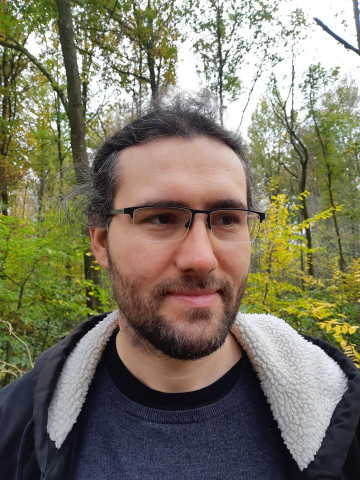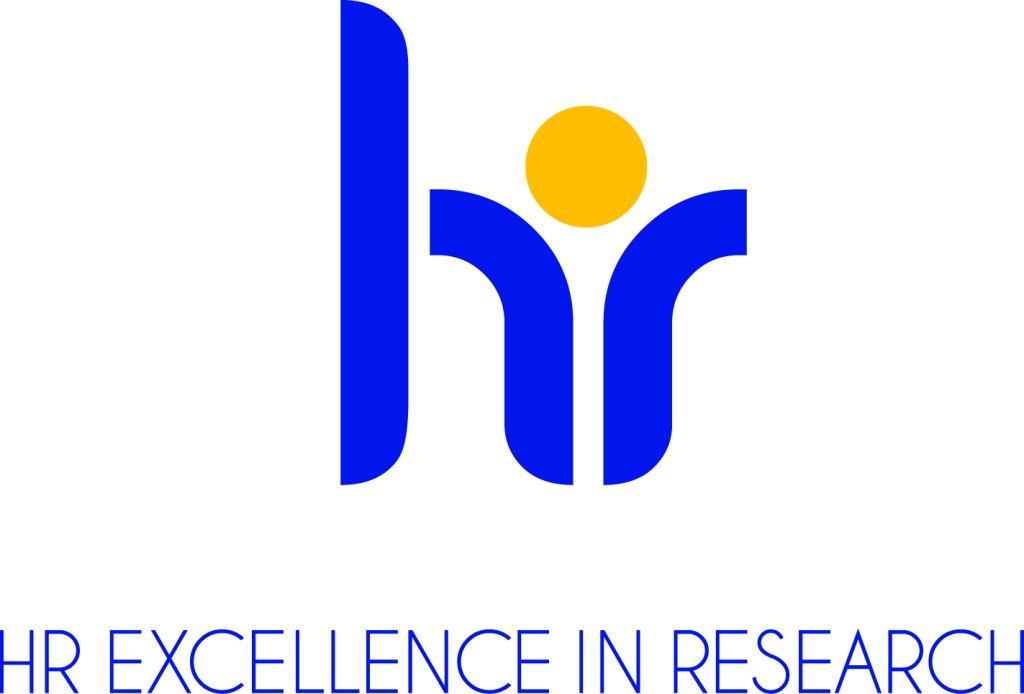dr Marcin Krasnodębski
18.11.2020 | 08.12.2023
Pracownia Historii Nauk Przyrodniczych i Medycznychtel. +48 22 65 72 748email: marcin.krasnodebski1@gmail.comORCID: 0000-0001-6551-3374 |
 |
Zainteresowania naukowe
Moje zainteresowania naukowe łączą historię i socjologię nauki, techniki oraz środowiska. Moim głównym tematem badawczym jest historia chemii i przemysłu chemicznego w 20 wieku, szczególnie w kontekście zrównoważonego rozwoju. Interesuję się również historią instytucji naukowych w służbie przemysłu oraz polityką naukową w powojennej Europie. Pracowałem także nad historią optyki i fotoniki, historią lasów przemysłowych, oraz relacjami nauka-religia. Wreszcie, interesują mnie zagadnienia związane z epistemologią, historiografią nauki oraz punkty styczności pomiędzy historią a filozofią nauki i techniki.
Wykształcenie, stopnie i tytuły naukowe
- 2013–2016 Doktorat z historii nauki i techniki na Uniwersytecie w Bordeaux w ekipie SPH (Sciences, Philosophie, Humanités). Tytuł rozprawy doktorskiej: „L’Institut du Pin et la chimie des résines en Aquitaine (1900–1970)”. Promotorzy: Pascal Duris, Jérôme Pierrel
- 2012–2013 Podwójny dyplom: 1) Magisterium z epistemologii i mediacji naukowej na Uniwersytecie w Strasbourgu oraz 2) Magisterium z socjologii nauki (STS- Science and Technology Studies) na Uniwersytecie w Maastricht w ramach programu ESST
- 2007–2012 Magisterium z prawa na Uniwersytecie Warszawskim
Zatrudnienie
- 2020– Instytut Historii Nauki PAN
- 2019–2020 Postdoc na Uniwersytecie Paris Saclay
- 2018–2019 Postdoc w IRSTEA (Institut national de recherche en sciences et technologies pour l’environnement et l’agriculture)
- 2017–2018 Postdoc na Uniwersytecie w Bordeaux
Udział w krajowych i międzynarodowych projektach badawczych
- 2020–2023 „Zielona Chemia avant la lettre” finansowego przez Narodowe Centrum Nauki w Instytucie Historii Nauki PAN (kierownik projektu)
Stypendia, nagrody i wyróżnienia
- 2019 Nagroda za najlepszy doktorat z historii nauki przyznana przez International Union of History and Philosophy of Science and Technology (https://dhstweb.org/2019-dhst-dissertation-prize)
- 2017 Proxime accessit za najlepszy doktorat z historii nauki przyznany przez Société française d’histoire des sciences et des techniques
- 2015 Stypendium Doan Fellow w Chemical Heritage Foundation (dzisiaj Science History Institute) w Filadelfii
- 2010 Stypendium Erasmus na roczny pobyt na Uniwersytecie w Poitiers
Wybrane publikacje
Doktorat i monografie
- Green Chemistry: A Brief Historical Critique, Peter Lang, Berlin 2022 (300 ss.).
- Le Centre de Recherches d’Aubervilliers : une histoire de chimie industrielle française, raport badawczy (362 strony), nie wydany, dostępny na żądanie za zgodą biura własności intelektualnej firmy Solvay.
- L’Institut du Pin et la chimie des résines en Aquitaine (1900–1970), doktorat (617 stron) obroniony 18 listopada 2016. Dostępny pod adresem: https://tel.archives-ouvertes.fr/tel-01409230.
Rozdziały w pracach zbiorowych
- Âge d’or ou crise : la chimie des résines en Aquitaine dans l’entre-deux-guerres, [w:] Entre reconstruction et mutations : Les industries de la chimie entre les deux guerres, red. Gérard Emptoz, Danielle Fauque, Jacques Breysse, EDP Sciences, Les Ulis 2018, ss. 359–390.
- Science, Law and… Pines: The French perspective on the co-production and standardization of turpentine, [w:] European Academy for Standardization Proceedings 2015: The Role of Standards in Transatlantic Trade and Regulations, red. Karl Jakobs, Euras Publishing, Aachen 2015, ss. 217–233.
Artykuły
-
The Bumpy Road to Sustainability: Reassessing the History of the Twelve Principles of Green Chemistry, „Studies in History and Philosophy of Science”, 2024 (przyjęty do publikacji).
-
Beyond green chemistry: Radical environmental transformation through Sanfte Chemie (1985–1995), „History of Science”, 2023, online first. https://doi.org/10.1177/00732753231194801
-
An unlikely bifurcation: history of sustainable (but not Green) chemistry, „Foundations of Chemistry”, 2023, 25, s. 463–484.
-
B. Hautdidier, V. Banos, M. Krasnodębski, Z. Ginter, L. Couderchet, N. Lemoigne, & C. Kull, Au-delà du face-à-face entre une forêt industrialisée et ses « marges sauvages » : dynamiques d’innovation et processus de requalification des espaces forestiers en Aquitaine. „Pour. La revue du Groupe Ruralités, Éducation et Politiques”, 2023, n. 246, s. 55-62.
-
Ideologiczne, polityczne i filozoficzne podstawy polityki naukowej i przemysłowej niemieckiej partii Zielonych w latach 80. i 90.: przypadek „miękkiej chemii” (sanfte Chemie). „Studia Historiae Scientiarum”, 2023, 22.
- Reinventing the wheel: A critical look at one-world and circular chemistries, „Studies in History and Philosophy of Science”, 2022, 96, s. 112–120.
- Lost Green Chemistries: History of Forgotten Environmental Trajectories, „Centaurus”, 2022, 64(2), s. 509–536.
- Rethinking Research in the Chemical Industry: Organizational History of Centre de Recherches d’Aubervilliers (1953‒2020), „Studia Historiae Scientiarum”, 2022, 21, s. 703–737.
- Krótka historia kodyfikacji na rzecz chemii przyjaznej środowisku naturalnemu, Kwartalnik Historii Nauki i Techniki, 2022, 67(2), s. 33–64.
- The Social Construction of Pine Forest Wastes in Southwestern France During the Nineteenth and Twentieth Centuries, „Environment and History”, 2022, 28(1), s. 155–183.
- Upscaling Forest Waste: The French Quest for Fuel Autarky after World War I, „Technology and Culture”, 2021, 62(1), s. 105–127.
- The meandering life of a research trajectory: Rare earths in the Aubervilliers Research Centre (1953—2020), „Ambix” 2021, 68(4), s. 385–406.
- Challenging the Pine: Epistemic Underpinnings of Techno-Environmental Inertia, „Journal for the History of Environment and Society” 2019, t. 4, s. 41–69.
- Les mutations identitaires d’un institut de recherche face aux évolutions des politiques scientifiques en France : le cas de l’Institut d’Optique (1917–2017), „Les Cahiers d’histoire du Cnam” 2019, t. 2, p. 119–145.
- Between Forest and Laboratory: Knowledge Circulation between French and American Naval Stores Chemistry (1900–1970), „Agricultural History” 2018, 92(4), p. 541–568.
- Throwing Light on Photonics: Genealogy of a technological paradigm, „Centaurus” 2018, 60(1–2), s. 3–24.
- Beyond Private and Public Research: The Legal and Organizational Reality Behind Industrial Research Institutes in Interwar France, „Minerva” 2018, 56(3), s. 333–355.
- Benjamin Le Roux, Marcin Krasnodębski, Pierre Duhem’s use of the return to the sources as a justification tool, „Transversal: International Journal for the Historiography of Science” 2017, t. 3, s. 37–50.
- Can Science Feed on a Crisis? Expectations, the Pine Institute and the Decline of the French Resin Industry, „Science in Contex” 2017, 30(1), s. 61–87.
- From distillation to standardization: a French perspective on shaping of turpentine spirit (1909–1976), „Ambix” 2016, 63(4), s. 326–346.
- Constructing creationists: French and British narratives and policies in the wake of the resurgence of anti-evolution movements, „Studies in History and Philosophy of Biological and Biomedical Sciences” 2014, t. 47, s. 35–44.
- Zakon Kawalerów Maltańskich: Perspektywa historyczno-prawna, „Przegląd Prawniczy Uniwersytetu Warszawskiego” 2009, t. 3, s. 3–15.
Artykuły popularnonaukowe
- Wielka sprawa w Little Rock: czy kreacjonizm to nauka?, „TVP Nauka”, 5 grudnia 2023
- Rachel Carson: pionierka walki z kryzysem ekologicznym, „TVP Nauka”, 22 listopada 2023
- Trofim Łysenko – jak komuniści walczyli z teorią ewolucji, „TVP Nauka”, 21 listopada 2023
- Jacques Ellul – prorok anty-technologicznego pesymizmu, „TVP Nauka”, 9 listopada 2023
- Trimates – jak kobiety położyły podwaliny pod współczesną prymatologię, „TVP Nauka”, 6 października 2023
- Obserwatoria Astronomiczne w XIX wieku: między fabryką obserwacji, a miejscem spotkań elit, „TVP Nauka”, 6 października 2023
- Nie tylko Oppenheimer: Stanisław Ulam a broń atomowa, „TVP Nauka”, 5 października 2023
- Enrico Fermi – Geniusz i Wygnaniec, „TVP Nauka”, 29 września 2023.
- Chemiurgia: zapomniana nauka o odnawialności, „TVP Nauka”, 13 sierpnia 2023.
- Laser Mégajoule: Największy laser Europy w służbie badań nad fuzją jądrową, „TVP Nauka”, 20 sierpnia 2023.
- Sir Alexander Fleming – Geniusz z przypadku, „TVP Nauka”, 16 czerwca 2023.
- Operacja Paperclip: jak nazistowscy naukowcy położyli podwaliny pod sukcesy NASA?, „TVP Nauka”, 20 lipca 2023.
- Bomba, Kolos i Enigma: Szyfranci u źródeł pierwszych komputerów, „TVP Nauka”, 8 sierpnia 2023.
- Choroba z Minamaty: kulisy japońskiej katastrofy ekologicznej z lat 50. i 60., „TVP Nauka”, 7 czerwca 2023.
- Niezauważona rewolucja: Urodziny zielonej chemii, „TVP Nauka”, 29 marca 2023.
- Tomasz Kuhn: Czy postęp nauki odbywa się na drodze rewolucji?, „TVP Nauka”, 6 marca 2023.
- Ludwik Pasteur a spór, który wstrząsnął XIX-wieczną Francją, „TVP Nauka”, 27 grudnia 2022.
- Dyplomacja naukowa w służbie ludzkości. Jak narodził się CERN?, „TVP Nauka”, 24 grudnia 2022.
- Pożar na rzece Cuyahoga. Początki ruchów na rzecz ochrony środowiska, „TVP Nauka”, 20 grudnia 2022.
- Desertron: Największy akcelerator cząstek, który nigdy nie powstał, „TVP Nauka”, 29 listopada 2022.
- Piotr Słonimski – polsko-francuski pionier genetyki, Instytut de Republica, 2022 (https://iderepublica.pl/znani-nieznani/indeks/piotr-slonimski/).
- Emil Meyerson – zapomniany gigant filozofii nauki, Instytut de Republica, 2021 (https://iderepublica.pl/znani-nieznani/indeks/emil-meyerson/).
- Smart society: a winding road towards the future, „Fetfx” 2018.
- Small wind turbines: a glimmer of hope for Poland’s wind energy sector?, „Youris.com”, 2016.
- Clinical trials Eldorado based on quality, not cost, „Euroscientist” 2014 (additional reporting).
- Creating what we need from what we have—how innovation rescues traditional industries, „Euroscientist” 2014.
- Marcin Krasnodębski, Bethany Eldridge, Europe lagging behind in open education: for how long, „Euroscientist”, 2013.
- Big Data – a silent revolution?, „Euroscientist” 2013.
- When one size food rule does not fit all in Europe, „Youris.com” 2013.
- Energy security: Poland goes for nuclear power, in a backdrop of EU green energy policies, „Euroscientist” 2013.
Inne
-
Recenzja: Research between Science, Society and Politics: The History and Scientific Development of Green Chemistry, „Ambix”, 2023, t. 70, n. 3, s. 333–335, DOI: 10.1080/00026980.2023.2222575
- raport pokonferencyjny: Francesco Gerali, Marcin Krasnodębski, Saara Matala, and Dick van Lente, Forty-fourth Symposium of the International Committee for the History of Technology: „Science, Technology, and Medicine between the Global and the Local” Rio de Janeiro, Brazil, 24–29 July 2017, „Technology and Culture”, 2018, 59(1), s. 152–158.
- Notatka na temat historii lokalnej w książce: Michel Arbez, Jean-Michel Carnus, et Antoine Kremer, Forêts d’hier et de demain. 50 ans de recherches en Aquitaine, Presses Universitaires de Bordeaux, Bordeaux 2017.
- (współautor raportu) The Implementation of European Standards and Guidelines For Quality Assurance in Higher Education Institutions, Eurashe, 2012.
- (współautor raportu) Guide to Caribbean Higher Education Institutions, Eurashe, 2012.
Międzynarodowe konferencje naukowe (wybrane)
- „Les horizons perdus : une histoire de l’appauvrissement des discours « verts » en chimie. Le cas de la chimie douce (1983-1995) et de la chimie circulaire (2019-2023)”, Congrès de la Société Française d’Histoire des Sciences et Techniques, Bordeaux, 19–21 kwietnia 2023.
- „From Goethe to Sustainability: Politics and Ideology of Sanfte Chemie”, 10th Conference of the European Society for the History of Science (ESHS), Bruksela, 7–10 września 2022.
- Prezentacja na temat skutków umów na czas określony na praktykę zawodową młodych historyków nauki, Journées Jeunes Chercheurs de la SFHST, Paryż, 26–27 listopada 2021.
- „Restructuring for Profit and Progress: Organizational Change in Centre des Recherches d’Aubervilliers (1953–2020)”, 26th International Congress of History of Science and Technology, Praga, 25–31 lipca 2021.
- „Penser l’histoire de la politique de recherche en chimie industrielle : Centre de Recherches Aubervilliers (1953–2020)”, Congrès de la Société Française d’Histoire des Sciences et Techniques, Montpellier, 21–23 kwietnia 2021.
- „The Phantom Menace of an Oil Crisis and the New Hope of Forest Fuels: the gasifier technology in the interwar France (1918–1939)”, ICOHTEC Annual Conference, Eindhoven (on-line), 15–17 lipiec 2020.
- „A Tale of Two Forests: Knowledge Circulation Patterns between French and American Naval Stores Chemistry 1900–1970”, Rural History international congress, Paryż, 10–13 wrzesień 2019.
- „Buzzword, Technology or Academic Discipline: An Introduction to the History of Photonics,” European Society for the History of Science Biennial Conference 2018, University College London, 14–17 wrzesień 2018.
- Okrągły stół: „Integrating History of Science and History of Technology”, History of Science Society Annual Meeting, Toronto, 9–12 listopad 2017.
- „Re-centering or decline: the last days of pine resin research laboratories in France and in the United States”, 25th International Congress of History of Science and Technology, Rio de Janeiro, 25–30 lipiec 2017.
- „From Ships to Rockets: Pine Institute and Resin Chemistry in Aquitaine (1900 – 1970)”, 2015 Introductory Symposium of the Consortium for History of Science, Technology and Medicine, Filadelphia, 10 wrzesień 2015.
- „Âge d’or ou prélude d’une crise? Chimie des résines en Aquitaine 1918–1939”, Congrès de la Société Française d’Histoire des sciences et des techniques, Lyon, 30 kwietnia 2014.


 Wróć
Wróć
